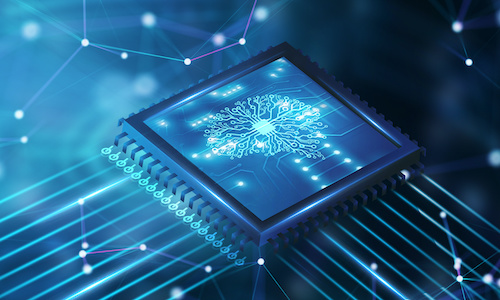Key points:
- The future of K-12 education with AI promises to be dynamic, adaptive, and focused on nurturing well-rounded individuals
- Learn about the role of AI in education
- Discover more about why AI in education is essential for learning
Unlocking boundless possibilities, AI in education promises to revolutionize learning. From personalized instruction to administrative efficiency, AI has the potential to transform traditional education models. Explore the limitless opportunities as we delve into the exciting potential of AI to shape the future of K-12 education.
What is the potential of AI in education?
The future of AI in education is multifaceted. AI can facilitate immersive learning experiences through augmented and virtual reality, enabling students to explore historical events, scientific phenomena, or architectural wonders in a dynamic and engaging manner. Additionally, AI-powered analytics can assist educators in identifying and addressing broader trends in student performance, helping to refine curriculum design and teaching methodologies. Collaborative projects can be enhanced with AI-driven tools that promote communication and teamwork skills. Furthermore, AI can contribute to the development of adaptive assessments, offering a more nuanced understanding of students’ capabilities beyond traditional testing methods.
By fostering creativity, critical thinking, and collaborative problem-solving, AI has the potential to cultivate a generation of students equipped with the skills necessary for success in a rapidly evolving digital landscape. The integration of AI in K-12 education opens up a realm of possibilities, transforming classrooms into dynamic environments that go beyond conventional teaching approaches, preparing students for the challenges and opportunities of the future.
What is the role of artificial intelligence in the future of education?
The role of AI in the future of K-12 education is poised to be transformative and multifaceted. Benefits of AI in education include revolutionizing traditional teaching methods by offering adaptive, personalized learning experiences. Beyond personalization, AI can enhance content creation, facilitating the development of interactive and immersive learning materials such as educational games, simulations, and virtual labs. This innovation will make education more engaging, catering to diverse learning preferences and fostering a deeper understanding of complex subjects.
Furthermore, AI can streamline administrative tasks, allowing educators to dedicate more time to personalized instruction and student interaction. The future of K-12 education with AI also includes the integration of data-driven insights, helping educators identify learning trends, assess student performance, and refine teaching strategies for continuous improvement.
In addition, AI’s role extends to the creation of collaborative and interactive environments, where students can engage in group projects and discussions facilitated by AI-driven tools. By cultivating critical thinking, creativity, and problem-solving skills, AI is set to contribute significantly to the holistic development of students, preparing them for the challenges and opportunities of an increasingly digital and interconnected world.
The future of K-12 education with AI promises to be dynamic, adaptive, and focused on nurturing well-rounded individuals equipped for success in the evolving landscape.
Does AI benefit or hurt the field of education?
The impact of AI on K-12 education is nuanced, with pros and cons of AI in education carefully outlined.
On the positive side, AI aids in personalized learning, adapting content to individual student needs, fostering deeper understanding. It also automates administrative tasks, freeing educators to focus on instruction. However, concerns arise regarding potential negative effects.
AI has the capacity to exacerbate educational inequalities if not implemented equitably. Access to AI-driven resources may vary among schools and students, leading to a digital divide. Additionally, reliance on AI may diminish the importance of human connection in education, potentially affecting social and emotional development. Cheating is another concern. AI algorithms could be exploited for plagiarism detection, potentially hindering students’ ethical development. Striking a balance between leveraging AI for educational benefits and addressing ethical challenges is crucial to ensure a positive impact on K-12 education.
Comprehensive policies, ethical guidelines, and ongoing evaluation are necessary to harness the potential benefits while mitigating potential harms, maintaining a focus on fostering equitable, engaging, and ethically sound educational environments for all students.
How artificial intelligence is used in education
Beyond tutoring and automation, AI education tools have many innovative applications. AI-driven tools facilitate interactive and adaptive content creation. Virtual laboratories and simulations, for instance, enable students to explore complex scientific concepts in engaging ways. AI also plays a role in data analytics, helping educators assess broader trends in student performance and informing curriculum adjustments.
Moreover, AI contributes to the development of collaborative learning environments. Tools like virtual assistants or chatbots enhance communication, fostering interaction and teamwork among students. These AI-driven tools offer additional support, answering queries and providing guidance beyond traditional classroom hours.
AI aids in the creation of adaptive assessments, moving beyond conventional testing methods. These assessments can gauge not only factual knowledge but also critical thinking and problem-solving skills, offering a more comprehensive understanding of students’ capabilities.
In essence, AI’s role in K-12 education extends to fostering creativity, critical thinking, and collaborative skills. By providing dynamic, interactive, and adaptive tools, AI enriches the educational experience, preparing students for the challenges of a rapidly evolving world. The diverse applications of AI in K-12 education underscore its potential to revolutionize traditional teaching methods and enhance the overall learning journey for students.
Conclusion
The potential of AI in K-12 education is vast and transformative. From fostering interactive learning environments to aiding in data-driven decision-making, AI promises to revolutionize traditional teaching methods, creating a dynamic and adaptive educational landscape that prepares students for success in the digital age.
- Classroom Learning - April 5, 2024
- Advantages and Disadvantages of Classroom Management - April 5, 2024
- What are Disadvantages of Classroom Management? - April 5, 2024

